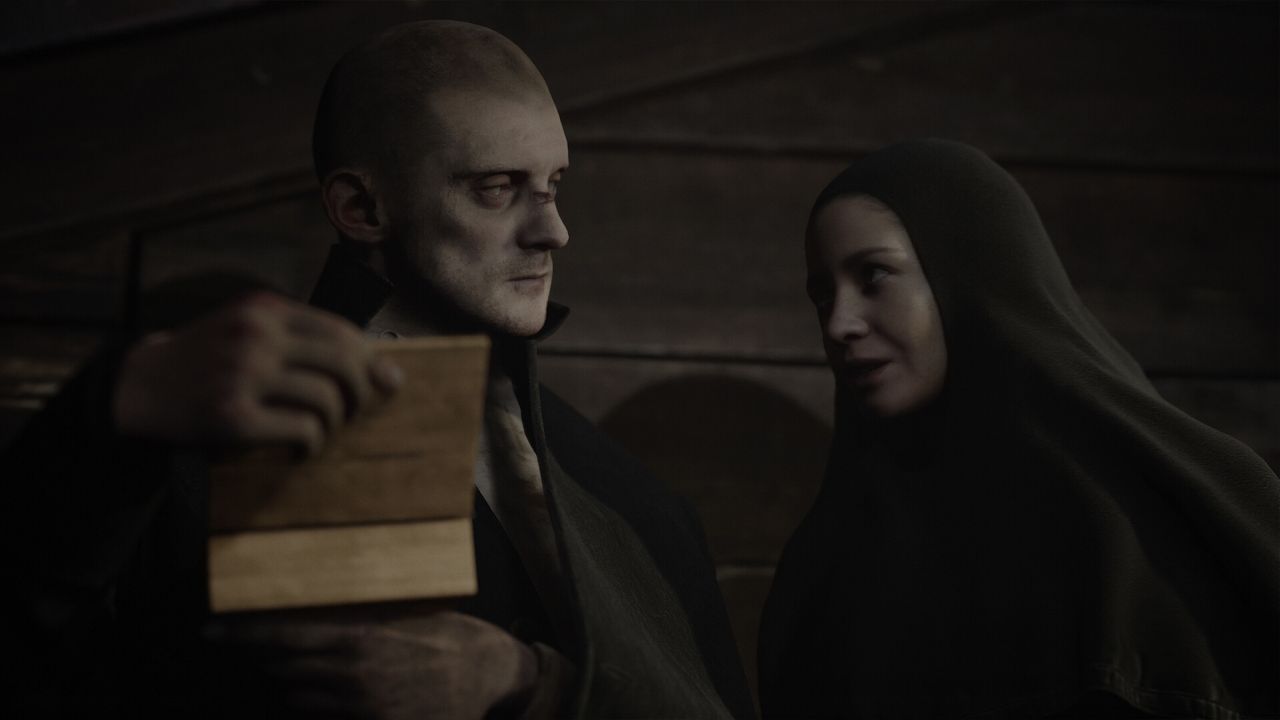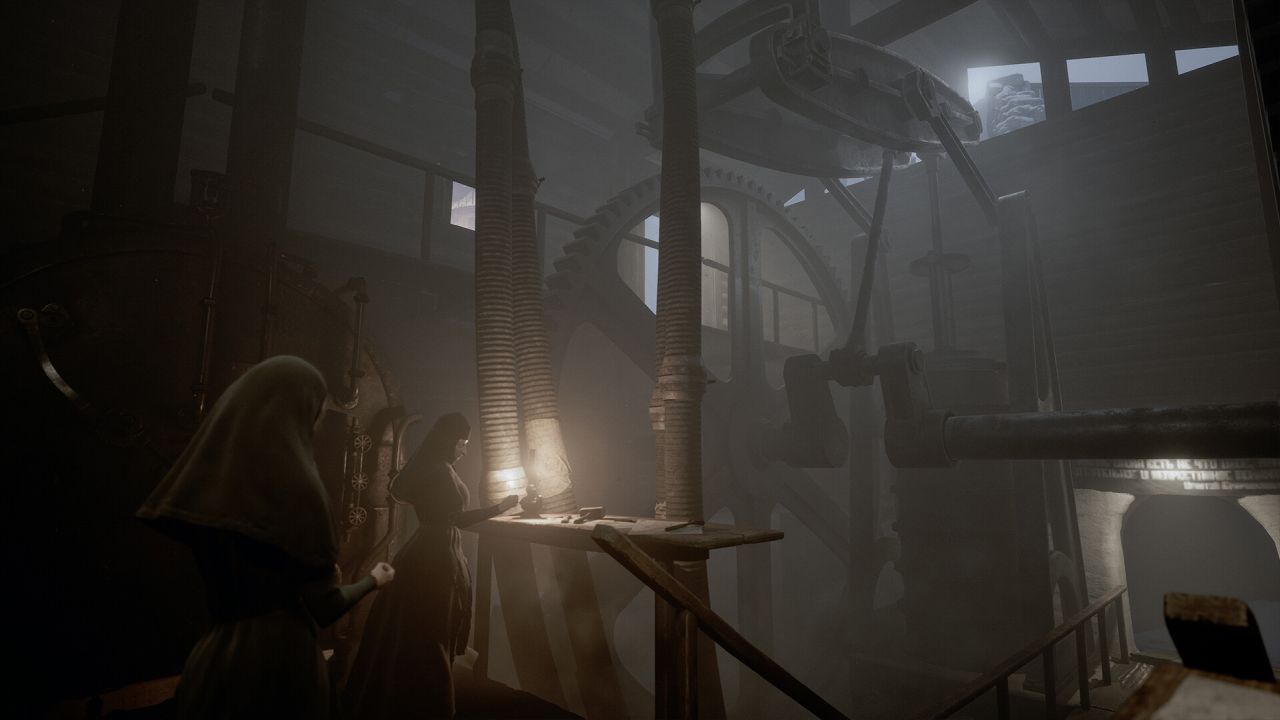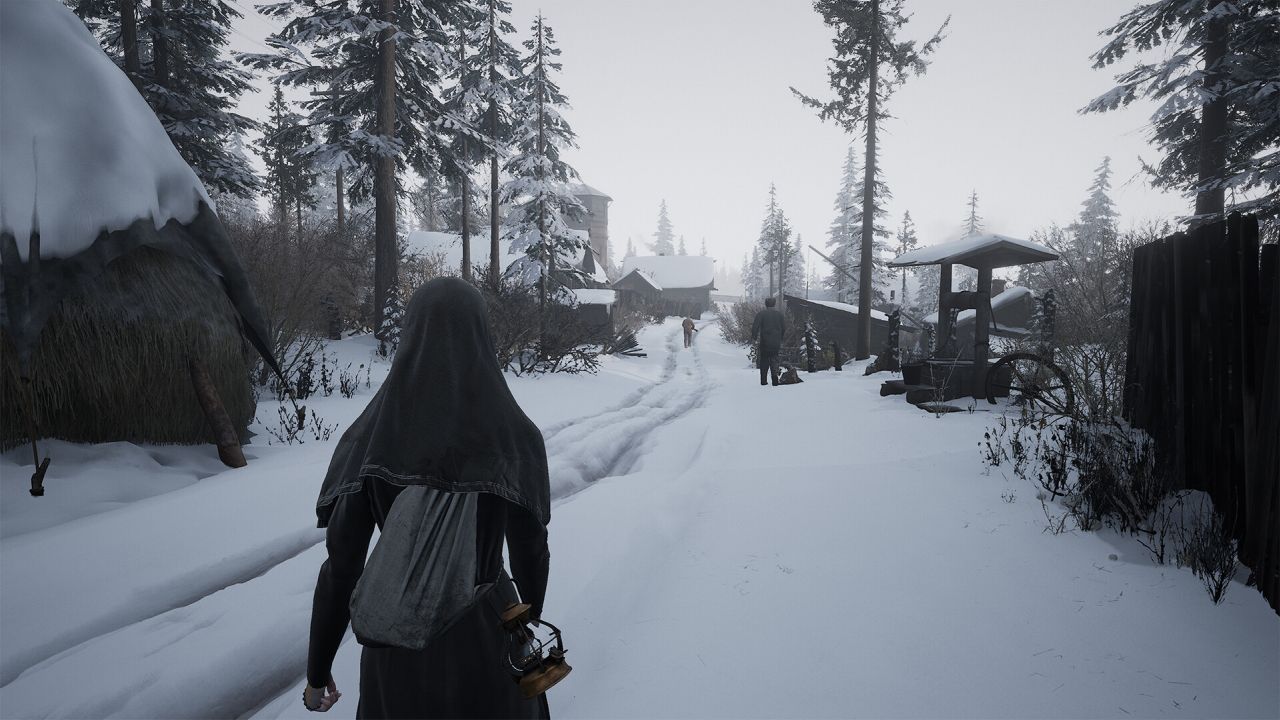Indika Review
In search of eternal essence
Film and literature are no strangers to questioning the biggest aspects of our lives, such as relationships, politics, and religion. But the video game industry has largely shied away from delving deep into these facets; it's challenging to discuss such difficult topics in a market that's mostly aimed at entertainment, with a large young audience, and the fact that you have to make it meaningfully interactive. That doesn't mean many creative minds haven't tried, and while some found success, most largely fall victim to being unable to adapt to the medium – in addition to the fact that game developers are perhaps not the most qualified bunch to discuss these topics with any level of conviction. The newest title to try and delve into the meaning of religion is Indika, a third person narrative adventure with a hint of surrealism.

Indika is named after its main character, a young woman who is a nun at an Orthodox church somewhere in Russia. It's winter during the early part of the 19th century in an alternate version of history. Indika tries to be a faithful servant of God and the elders of the church, but she has a problem – an unknown voice occasionally speaks to her, and she experiences strange surreal visions. These visions are often distracting, making her involuntarily react and disrupt the quiet sermons, which is why nobody at the church likes her. Fed up with the odd behavior, Indika is given a letter to deliver to another church. She is excited to undertake this responsibility, but along the way she gets entangled with an ex-convict man, who himself believes to be talking to God. Through a series of events they decide to change their destination to another town, where a miracle artifact is apparently performing feats of God. What follows is a trek through a few different locations on their way to the artifact.
The narrative set-up seems promising, but ends up being rather disappointing. The opening throws a bunch of bizarre imagery at the players, but after that the visions mostly quiet down, which is underwhelming. There as opportunity for consistent wackiness here, but it's quickly abandoned. What follows is a fairly by-the-numbers adventure as the pair traverse through a few different locations for a brief time. There are occasionally interesting moments, but the actual chronology of events is paper thin, and there is no sense of danger or a goal to work towards, other than just reaching their destination. It doesn't help that the writing and dialogue are weak, and don't nearly have the power to deliver insightful or disruptive commentary on religion. The English voice acting doesn’t help either, with weak and often monotone delivery from both leads, who also sport British accents that do not fit the setting at all. Russian voice acting is available, but it suffers from similar strange delivery that lacks urgency at all times.
Elsewhere, the menacing and mischievous voice in Indika's head is not as strong of a component of the story as you would hope. He only really speaks when you are walking somewhere, and those disruptive moments that he causes to get her kicked out of the church never happen again. The voice also has surprisingly little insight – all it does for most of the game is present her with some dilemmas, that make her question if the religious morality that she's been taught can truly be universally applied. The voice presents a few of these dilemmas, but offers no deeper discussion or answers. It simply states counter-points to Indika's beliefs, and smugly leaves it at that. In many ways it feels inspired by the likes of The Talos Principle, but without the same level of insight or persuasion.

The game as a whole has serious trouble finding its thematic footing, because while Indika's journey is presented through decent modern visuals, there are brief sections where things switch to a 2D pixelated adventure, to delve into her memories. This cliché art style also permeates the rest of the game, with UI elements, an unexplained skill tree with branches for regret and repentance, and a coin counter. As the game itself points out, none of these systems matter; they are a supposed meta-commentary that tries to tie video game mechanics and quest systems into the real world. But it all falls entirely flat, and is a negative distraction from the surprisingly atmospheric setting that feels oppressive and gloomy. There was potential for immersion here, inspired by the likes of A Plague Tale, but it is squandered by its own distractions.
Indika herself often has trouble finding her footing, thanks to the awkward third-person controls. You'll be making your way through a number of linear locations, mostly doing a lot of walking, with some occasional climbing and a few puzzles. Though here again, the gameplay elements feel like they were crafted separately from the setting; Indika will visit old factories, train depots, and make her way through a village and some forest terrain. But it makes little sense why a nun would be going through such locations, all without a second thought or a moment of doubt. You'll operate large cranes, push boxes around, control elevators, pull levers, and other typical adventure game stuff – all of which just seems strange to do for this character. There is some background that she used to work with her father in a mechanic shop, and didn't really want to become a nun, which attempts to explain her aptitude to this hard labor and interaction with machinery. But if you think about it for too long, that actually starts to contradict the rest of the story, where Indika is clinging to her religion instead of letting go at the first opportunity.
The puzzles are simple, and yet occasionally annoying, due to their rudimentary busywork nature and the clumsy controls. One slightly creative puzzle type that appears just a couple of times is when Indika has a moment of weakness, and the voice becomes so powerful that it distorts the surrounding area. During these moments, Indika can pray in order to put the world back together. You have to manipulate these two states of the level in order to reach the far side. There are shades of Hellblade here, but again executed with much less finesse. The controls become a particular annoyance during one section of the game that acts as a set-piece and requires some quick maneuverability to escape danger.

At least the visual presentation is of surprisingly good quality. Running on Unreal Engine, the adventure crafts a gloomy and atmospheric winter, and if it wasn't for the pixelated style constantly trying to break through, it would have made for an immersive cinematic adventure. The quality of the character models, faces, and animations is unexpectedly high for a game in this price range. The game is also notably full of interesting camera angles, something you'd see in indie films but rarely in video games. Some of these camera angles are quite creative and memorable. But, just like an indie film, the adventure is over far too quickly at under 3 hours, and offers nothing in the finale.
Elsewhere, the audio effects are quite barebones. While your immediate vicinity looks okay, objects in the distance such as trees and shrubs noticeably lack detail and suffer from pop-in, even on highest quality settings. The game maintains a mostly steady framerate, though there are moments at the start of new chapters that suffer from stutters. The game is often interrupted by black loading screens, and they are poorly placed, creating some rough transitions, sometimes in the midst of action.
Indika is an interesting experiment, but one that gets more things wrong than right. It's a unique adventure in terms of style and themes that it mixes together, but it's weighed down by rudimentary and dull gameplay – though thankfully not on the same level of pretentious disaster as Kentucky Route Zero. But it doesn’t manage even to entertain through its absurdity, like D4: Dark Dreams Don't Die. It's not often that one would advocate for a game to be a walking sim, but this title would have been better off choosing that path. The immersive atmosphere sabotages itself with bits of cliché 2D pixelated art and British voice actors, while the philosophical musings and moral dilemmas about religion don't come across as convincing or offering any unique or interesting perspective. At the $25 asking price, and no replay value do its linearity, Indika will be an acquired taste that many won’t feel the need to sample.
 Comments
Comments










